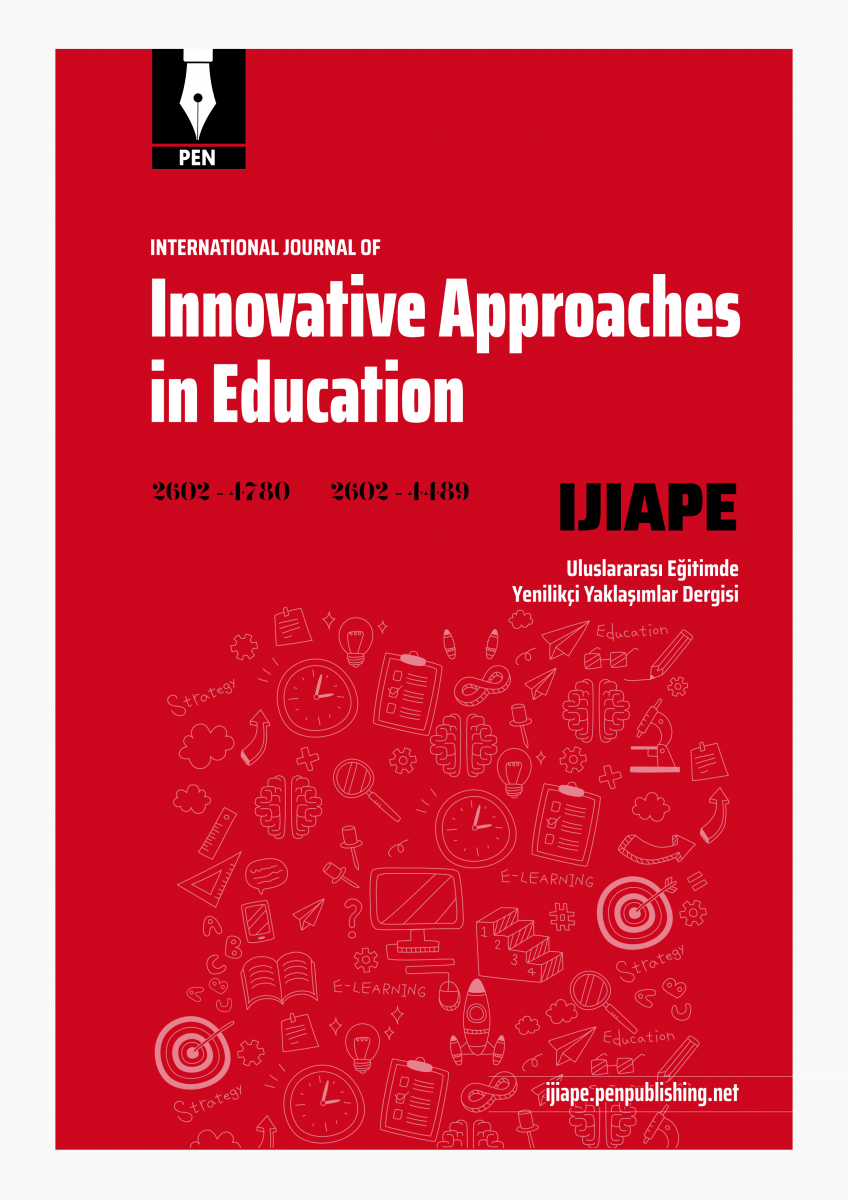Research article | Open Access
International Journal of Innovative Approaches in Education 2022, Vol. 6(3) 157-172
Occupational Cynicism According to the Opinions of Teachers
pp. 157 - 172 | DOI: https://doi.org/10.29329/ijiape.2022.473.3
Publish Date: September 30, 2022 | Single/Total View: 158/460 | Single/Total Download: 201/712
Abstract
Cynicism, which is defined as the critical and insulting attitudes towards life, people and institutions depending on the negative experiences and feelings of the people, can be exhibited by the employees in the organizations. Cynicism consists of individual and organizational dimensions. Occupational cynicism is a type of organizational cynicism and can be expressed as emotional fatigue, disregard for the profession, thinking that the profession is overwhelming, not rewarding, not worth for the effort, having a negative perspective, attitude and feelings towards one's profession. It is the reflection of these attitudes and feelings critically. Emotions, attitudes and behaviors of teachers towards their profession can positively or negatively affect the climate of the educational organizations they are in, and therefore the educational outcomes. In the literature, there are studies on organizational cynicism for teachers. However, studies examining teachers' perceptions of occupational cynicism seem to be limited. Therefore, it can be said that examining teachers' opinions towards occupational cynicism is important. For this reason, the purpose of this study is to examine teachers' opinions of cynicism towards their profession. The study was designed with phenomenology, one of the qualitative research methods, and maximum variation sampling method was used to determine the study group. The study group consists of teachers working in public schools. The data were obtained by collecting with a semi-structured interview form. Descriptive analysis of the obtained data was made. The study was evaluated around four main themes. These are teachers' perceptions of occupational cynicism, causes of occupational cynicism, results of occupational cynicism and precautions to reduce occupational cynicism. According to the results of the study, the attitudes and behaviors towards occupational cynicism are not worth the effort, the thought that the teaching profession is worthless, the idea that professional rights are limited, and negative attitudes and behaviors such as reluctance. The labor which is not valued enough, unnecessary workload other than education and training, financial and family problems, lack of sufficient legal basis to protect the rights of teachers, problems with students and parents, injustice and management styles within the institution are some of the main causes for occupational cynicism according to the participants. Decline the quality of the education-teaching process, internal conflicts, decrease in school commitment, psychosomatic problems, communication problems, decreased professional commitment and resignation are some of the institutional and individual consequences of occupational cynicism for participants. According to the participants, establishing justice-based education policies, encouraging professional development, strengthening school culture, participating in personal and professional development activities, changing institutions, staying away from the work environment for a short time are some of the precautions listed to reduce occupational cynicism.
Keywords: Cynicism, Occupational Cynicism, Teacher
| How to Cite this Article? |
|---|
|
APA 7th edition Harvard Chicago 16th edition |
| References |
|---|
|

